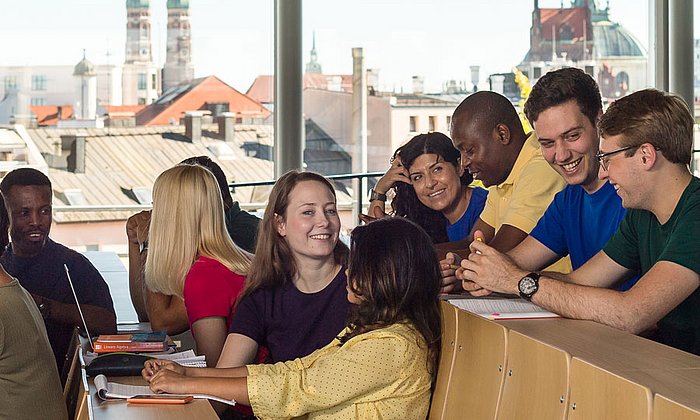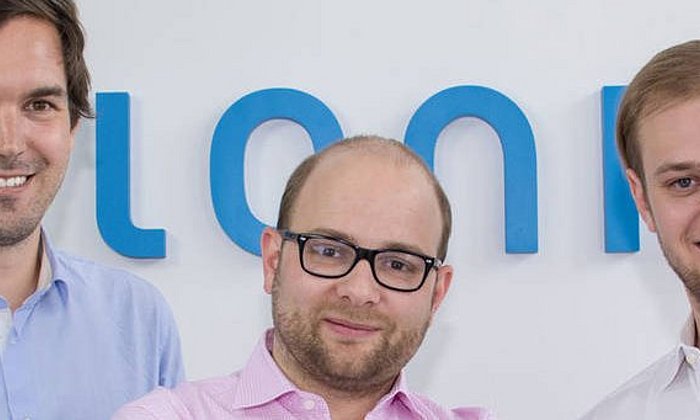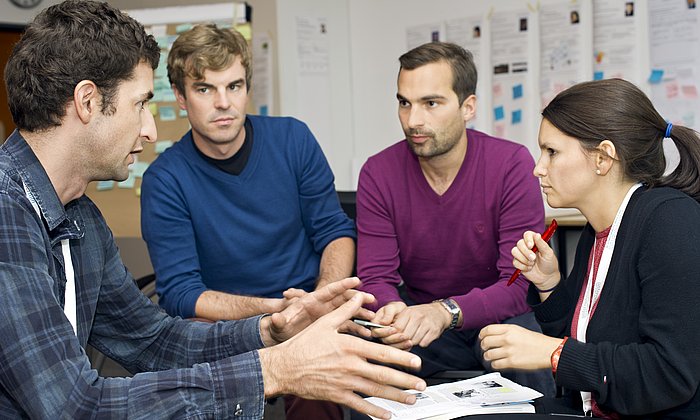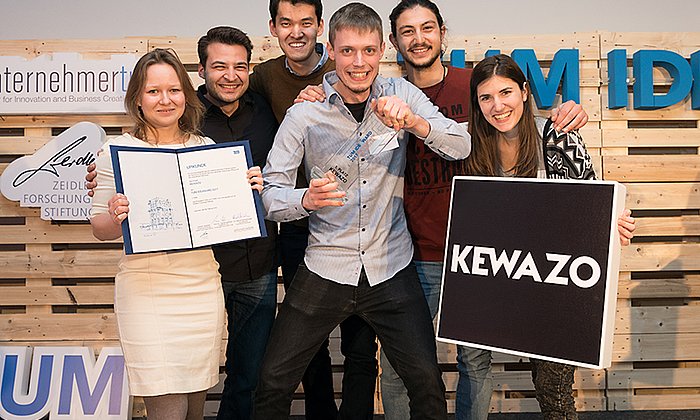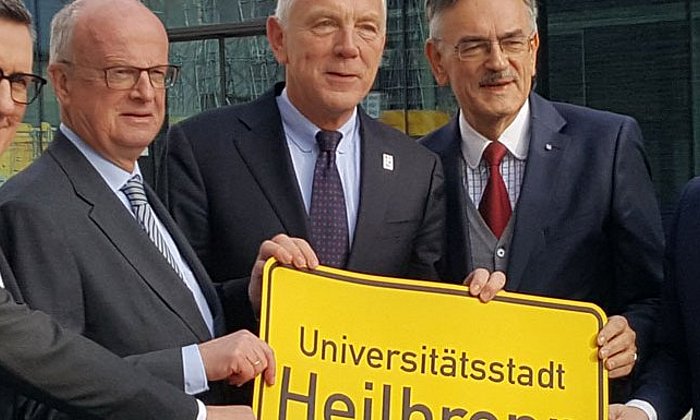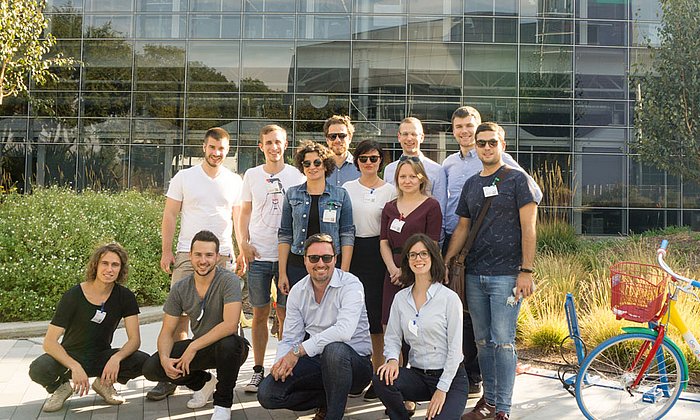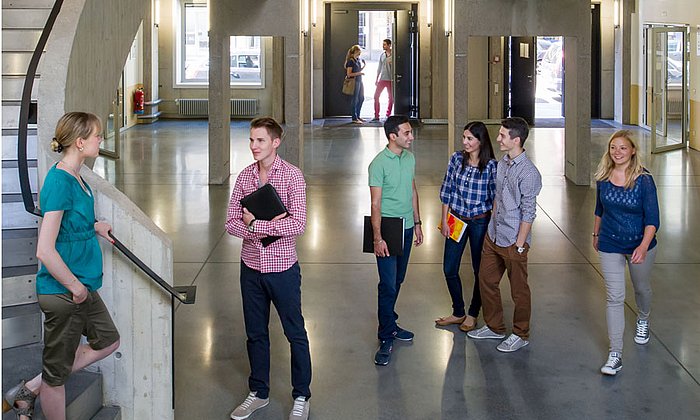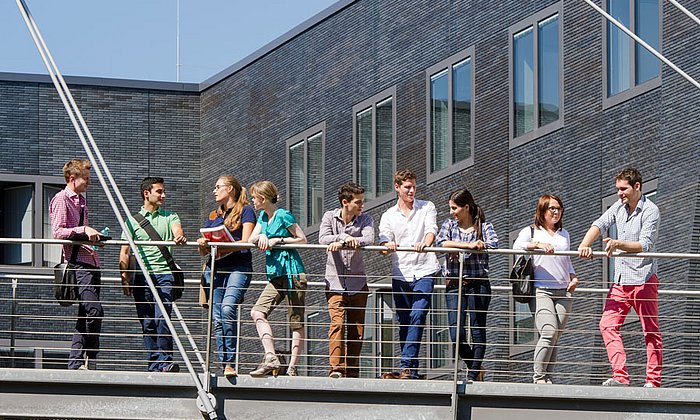Interview with the economist Gunther Friedl on the newly opened TUM Campus Heilbronn
"The Mittelstand sector gets short shrift"

The strong presence of family-owned companies is one of the main reasons for TUM setting up a campus in the federal state Baden-Württemberg. What makes these companies so interesting? What aspects do you plan to study?
We want to decode the secret to the success of the family companies. They represent an essential part of the so-called Mittelstand – the small and mid-sized enterprises – and are rightly seen as the backbone of Germany's economy. Of course we all have a certain image of these companies. But many of their defining characteristics, for example their long-term strategic approach, have attracted little attention in terms of systematic research.
So the "hidden champions" are practically invisible not only to the general public, but also in the field of management science?
Yes, that's true. Researchers have tended to give the Mittelstand short shrift. That is partly due to the companies themselves, which tend to avoid the spotlight. And universities sometimes opt for the easy route and seize on the readily accessible data provided by publicly traded companies.
How do you plan to get the Mittelstand companies to open up?
Instead of just doing research about them, we want to do it with them. And we're convinced that the results of that work could benefit them, too. The changes through digitalization are going to be a big issue that will pose even greater challenges for small and mid-sized companies than for large ones. A corporation listed on the DAX exchange can buy the knowledge it needs. But family companies will have to develop it themselves, for example when they want to adjust their business models: What do I need to do if I'm no longer just selling a machine, but using it as part of the Internet of Things, so that I can offer additional services?
It's not only products and sales channels that are in a state of flux. Companies' organizational structures are also undergoing a transformation, even towards "democratization".
We are doing research at TUM on these "democratic companies". Today companies of that description are operating successfully which, only a few years ago, would have been laughed at: The senior management is elected, people rotate in and out of management roles, and employees vote on their salaries. Some family companies where the owners take good care of the workforce, but still try to run a tight ship, have a harder time dealing with that kind of approach.
What do these developments have to do with digitalization?
The possibilities opened up by the new technologies had a decisive impact. Employees are now expected to be constantly sharing their knowledge, to adopt the networked mindset to support that, and to be entrepreneurial on their own initiative. In exchange, they want to have more of a say in things. And incidentally, that is a good example of the overarching theme of our department's research and teaching activities: the interplay of technology and management.
That's an area where there is obviously a great deal of work to be done. The TUM School of Management is just 16 years old, but already has 40 professorships and 5,000 students.
I must admit: When I first heard about TUM's plans to establish a business school focusing on what was then seen as the niche area of "business and technology", I shared the view of many colleagues who thought it seemed a little "out there". Today I'm amazed that nobody thought of it sooner. After all – from an entirely economic standpoint – there's a huge market for it.
How does that profile impact the degree courses at the school?
Business people and engineers speak different languages. This can get in the way of innovations in companies. Even leading global corporations tell us stories of projects that failed because the sales or controlling division understand too little about emerging technologies. We prepare our students for everyday reality in companies where those two worlds are inseparably linked.
In the Management & Technology bachelor's program, all management students meet 30 percent of their degree requirements with courses in an engineering or natural sciences subject.
Even now I often get a stunned reaction when I tell people that our students are graded in informatics exams by the same standards as informatics majors. Equally important, however: We also link all areas in the management sciences to the specific issues of a technological world. With that point of view, we break open the subject areas of conventional business administration studies. That's because we believe that certain economic sectors such as energy and healthcare cannot be lumped together under the same methodologies.
How does the world of business respond to that philosophy?
Companies recruit our students before they even graduate. Professionals with career experience enroll in our MBA programs. In the highly respected QS Business Masters Rankings, released this week, our Management & Technology master's program ranked among the top 20 in the world and number two in Germany. We scored particularly high ratings for the employability of our graduates.
TUM also encourages and helps its students to set up their own companies.
We have a start-up support infrastructure here that is probably unique in Europe. UnternehmerTUM, the Center for Innovation and Business Creation, offers support ranging from accelerator programs to an enormous high-tech workshop for building prototypes and its own venture capital fund. In the TUM Incubator, the start-up teams work alongside our school's Entrepreneurship Research Institute so that hands-on experience can benefit from the academic research side and vice versa. We plan to establish a similar model in Heilbronn. At present, around 70 start-ups are established at TUM every year. One of them, the process mining provider Celonis, has just achieved unicorn status, that is a market valuation of a billion dollars. Of course that is our dream: A high-tech unicorn from Heilbronn, established by TUM students, with family companies as strategic partners.
More information:
- TUM Campus Heilbronn:
The foundation Dieter Schwarz Stiftung finances 20 new management sciences professorships at TUM for an initial period of 30 years, including 13 professorships at the new TUM Campus Heilbronn. TUM will establish a wide range of degree programs there comprising bachelor's and master's courses, executive education and doctoral studies. In the current winter semester, it is launching two English-language master's programs: Management & Innovation (continuing education) and Management, intended for holders of a bachelor's degree in engineering or natural sciences. The Management & Technology bachelor's program and a Master of Laws program will start in next year's winter semester.
- Prof. Dr. Gunther Friedl:
Gunther Friedl was appointed Dean of the TUM School of Management in 2010, following an appointment to the Chair of Controlling in 2007. Before that he held a professorship in Mainz and worked as a visiting scholar at Stanford University, among other positions. Prof. Friedl studied physics and business administration.
Technical University of Munich
Corporate Communications Center
- Klaus Becker
- klaus.becker@tum.de
- presse@tum.de
- Teamwebsite
